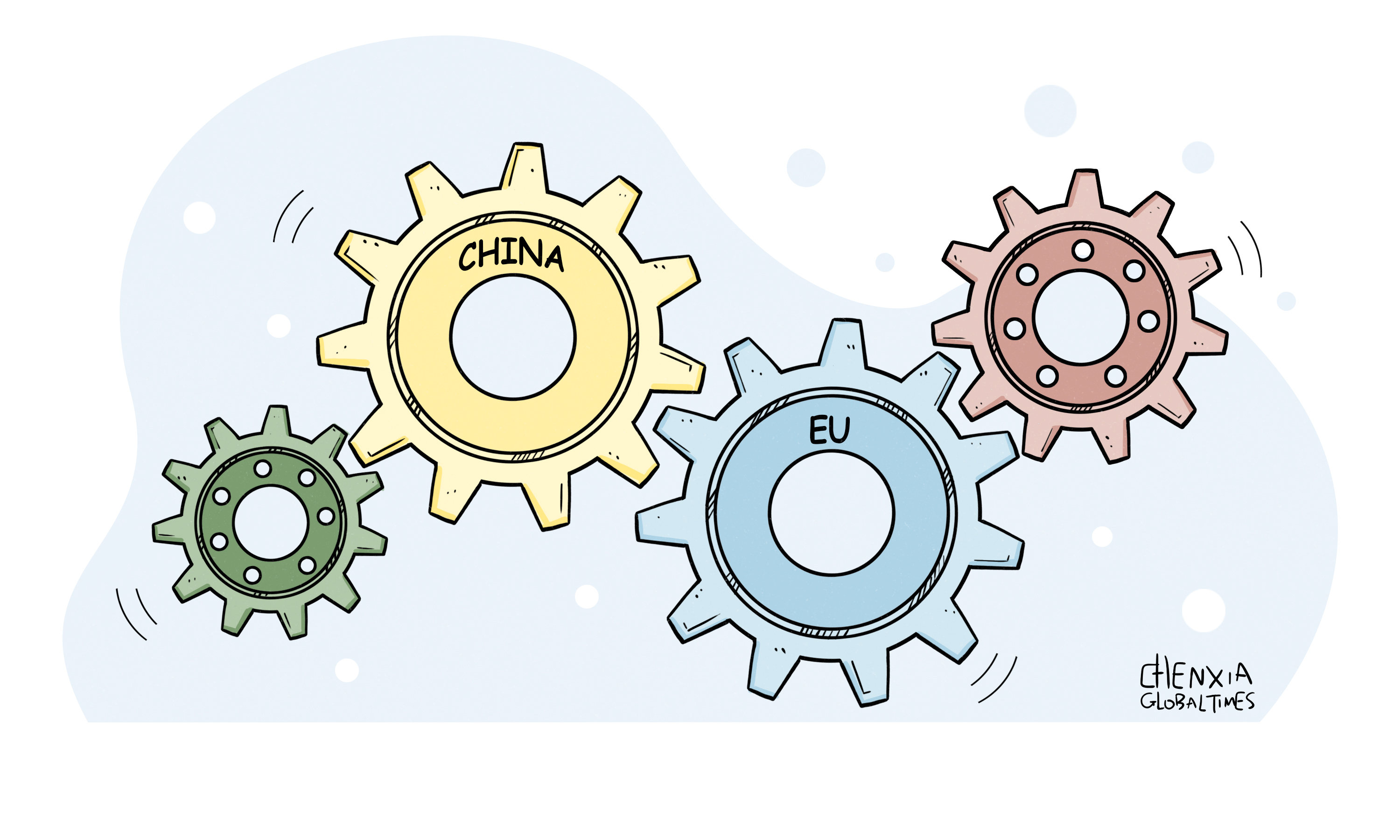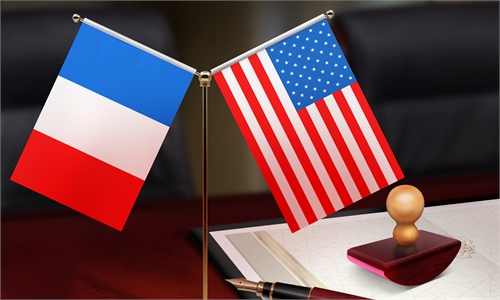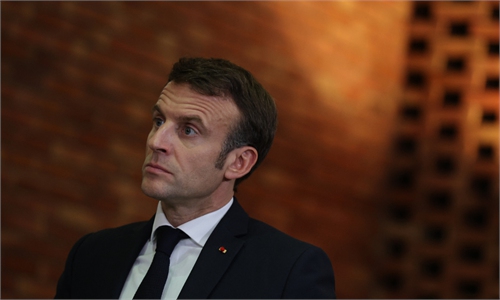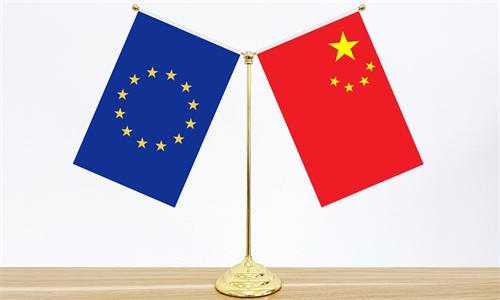
Illustration: Chen Xia/Global Times
Facing an increasingly tumultuous world, including the Russia-Ukraine conflict and the "de-globalization" and "decoupling" headwinds being orchestrated by the US, it is imperative for both the EU and China to stand up together and say no to Washington's ill-willed attempts to debilitate and splinter our world.
As each other's premium trade and economic partner, the EU and China depend on each other. It's absurd and silly to argue which depends on the other more, which is being stirred up by some sinister politicians and think tanks in the US and the West. The fast-growing Chinese market with 1.4 billion consumers is a huge opportunity for the EU economy.
As proved by many years of close collaboration that have significantly benefited both the EU and Chinese economies, the two sides have 100 reasons to continue economic cooperation, resolutely support free global trade and technology integration and oppose trade protectionism and economic fragmentation. The EU should always act as an independent economic and political bloc, never downgrading itself into an expendable piece on Washington's geopolitical chessboard.
Strengthening each other's economies and improving their people's livelihoods should top the agenda of the governments of EU countries and China, for only strong economies could enable them to weather whatever the future headwind is. So, it is in the common interest of China and the EU to continue to see one another as true partners and responsible stakeholders, while definitely not rivals or adversaries, because there are no irreconcilable geopolitical conflicts between them.
The stakes are high for the two sides to always uphold their win-win economic cooperation, not to be influenced or swayed by Washington politicians and Anglo-Saxon think tanks' preaching for win-lose competition and cut-throat rivalry - which in essence is zero-sum game to prolong the US' hegemonic role on our planet. As a matter of fact, a multipolar world in which the EU and China act as two decisive poles is more endurable, ideal and stable than a unipolar one.
As the Biden administration has been persuading European governments to follow its obstinate and ruthless calculation to "decouple" from the Chinese economy, most EU countries have distanced themselves from the US and its inner-circle allies such as the UK and Canada. The European Council held a strategic discussion on EU's policy toward China in late October, reaffirming EU's stance that it should have an independent China policy rather than doing Washington's bidding. That policy stance has won broad acclaim in the world.
Chinese scholars have noted that the more complicated and turbulent the time facing Europe and China, the more the two parties ought to insist on viewing each other from a strategic perspective - that China will always support a politically unified and economically integrated EU, while the latter should reciprocate by supporting China and opposing the US government's confrontational anti-China policy.
Certainly, no single relationship is without problems. It is naive to define a relationship in just one or two aspects, claiming that the relationship is not working perfectly well or it is going to collapse. Face-to-face communication between Chinese and EU leaders is of pivotal importance to promoting the steady growth of their relations through seeking common grounds and resolving their differences through sincere consultations. It is hoped that more European leaders could visit China next year.
Despite all the differences and sometimes disputes between them, China and the EU have one of the strongest economic ties that always help them withstand challenges. The relations have been resilient for many years, and both sides should take the initiative and be more inclusive and pragmatic to bolster the fruitful ties.
The symbiotic nature of China-EU economic relations is best proved by the China-EU Railway Express (CEER). Connecting the two huge economies by rail, CEER now serves as the major artery of China-EU economic integration. Nicknamed "China-Eurasia Corridor," the first direct freight train left China's Chongqing and arrived in the German city of Duisburg in 2011. That year only 17 trains travelled between China and the EU. By July 2022, more than 10,000 trains have made the trip, and the duration of the trip has been shortened from 28 days to 14 days on average now.
The two economies have benefited greatly from the 21-century modern "Silk Road," which has been envied and castigated by Anglo-Saxon politicians. There are plans for the development of ports, railways and logistics parks all along the rail corridor, and many European ports are unifying their customs clearing procedures so as to increase freight trade efficiency.
The CEER now connects the expansive Eurasia continent, linking 196 European cities and more than 90 Chinese cities. Increasingly, the project under the Belt and Road Initiative is deemed a bridge connecting people, improving their living standards and breaking their isolation. And, the uninterrupted operation of the CEER amid the Russia-Ukraine conflict shows how resilient and necessary CEER is for most nations in Eurasia.
Since fully establishing a relationship in 1983, the economic partnership between China and the EU has kept booming. In 2021, bilateral commerce between China and the EU surged to a staggering $829 billion, which grew 27.5 percent over the previous year despite the pandemic.
The data should drive home the fact that not only is the US' bid to decouple from the EU and Chinese economies divorced from reality, but also that any attempts in this regard are futile. It also explains the high stakes why the two parties ought to continue to back up one another economically and diplomatically.
The author is an editor with the Global Times. bizopinino@globaltimes.com.cn



